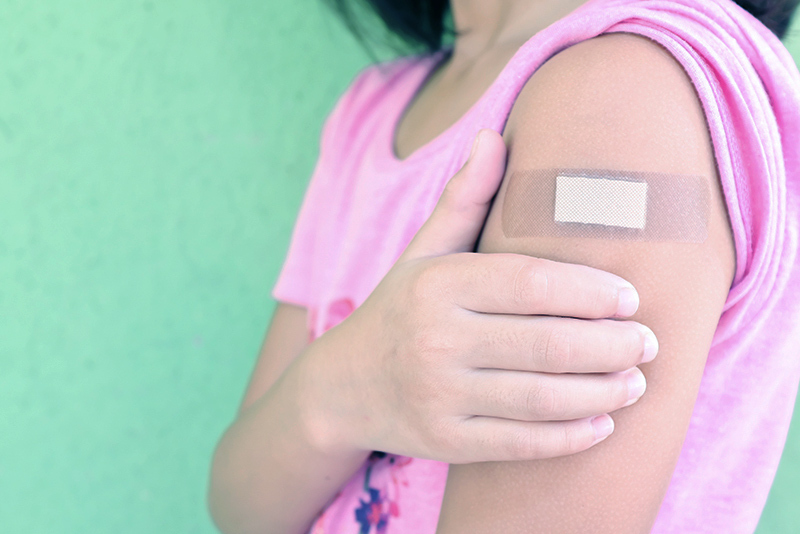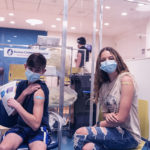COVID vaccines are here for kids ages 5 to 11. Here’s what families should know.

On November 2, 2021, the U.S. Centers for Disease Control and Prevention (CDC) signed off on the use of the Pfizer-BioNTech vaccine to help prevent COVID-19 in children ages 5 to 11. What does this mean for your child? We’ve got answers.
Why is it important to vaccinate kids against COVID-19?
Although most children have mild symptoms, we know they can infect other people in their families, as well as outside the home. Some of these other individuals may be at high risk of serious complications from COVID-19. Furthermore, some children do get very sick from COVID-19, and some go on to develop MIS-C or post-COVID symptoms.
How is this COVID vaccine different from what teenagers and adults receive?
Kids ages 5 to 11 will receive a pediatric formulation of the vaccine. The dosage is one-third of the dose that teens and adults receive.
When is my child considered fully vaccinated?
Children ages 5 to 11 are considered fully vaccinated 14 days after they have received two 10-microgram doses administered 21 days apart.
Is the vaccine safe for kids?
Yes. Safety data from trials of more than 3,000 children who received the vaccine found no serious adverse events related to the vaccine, including anaphylaxis or myocarditis, in this age group.
What side effects might my child experience from the vaccine?
In the studies mentioned above, the most common side effects were pain at the injection site, fatigue, and headache. These reactions were mostly mild or moderate.
Should my child get the vaccine if they’ve already had COVID-19?
Yes. Even if your child has previously tested positive for COVID-19, they should still be vaccinated. Although our bodies make an immune response after being infected with COVID-19, experts don’t know how long this immunity will protect us from the virus.
How long does vaccine protection against COVID-19 last?
We’re not sure yet. We will need to continue to follow children who receive the vaccine to know how long immunity lasts. But from the data we have so far, it seems that it lasts at least several months.
Does my vaccinated child still need to wear a mask and social distance in public?
While we’ve come a long way since the start of the outbreak last year, there is still much about COVID-19 we don’t know. For example, we are still researching how long vaccine protection lasts and the level of protection current vaccines offer against new variants of the virus. Until we have more data, it’s important for everyone to continue to use prevention measures, regardless of your vaccination status. This is not only to protect yourself, but to protect other vulnerable people in your community.
Get more answers for your family about COVID-19.
Related Posts :
-

Answers to your questions about the COVID-19 vaccine
Update: On May 10, 2021, the U.S. Food and Drug Administration (FDA) granted emergency authorization for use of the Pfizer vaccine ...
-

COVID-19 vaccines: Do you know myth from fact?
Two COVID-19 vaccines — from Pfizer/BioNTtech and Moderna — have received emergency use authorization in the United States by the ...
-

Two for one: It’s safe to get COVID and flu vaccines at the same time
Your child can greatly reduce the risk of serious illness by receiving COVID and flu vaccines in one sitting — all ...
-

Boston Children’s post-COVID clinic cares for those with lasting symptoms
One teenager complains of chronic muscle pain. Another child feels too exhausted to go to school or play sports. Still ...





